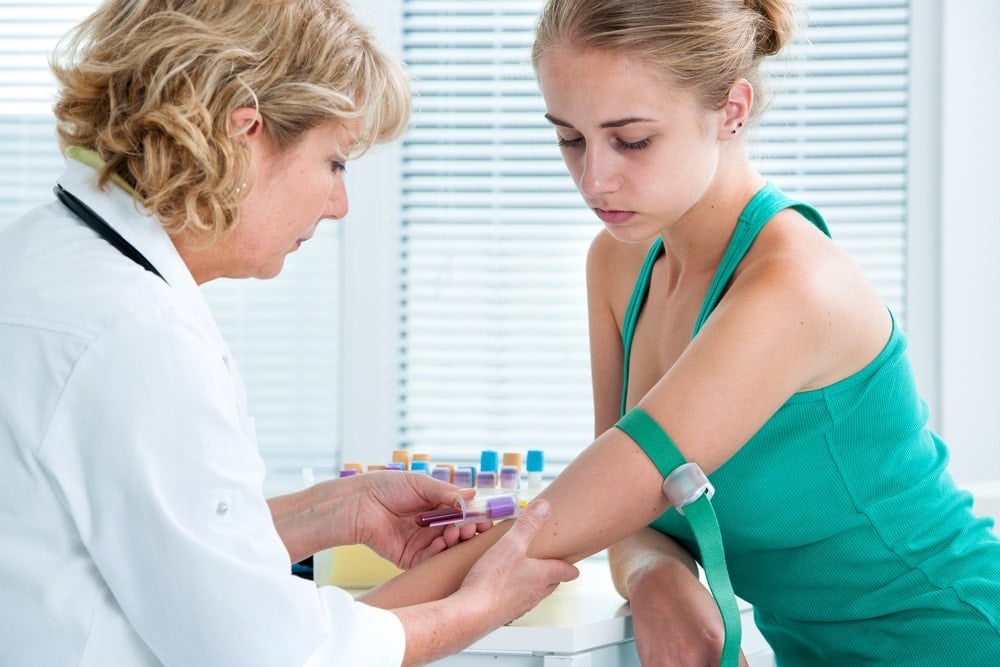Syphilis During Pregnancy: Symptoms, Testing, and Treatment
Pregnancy can be a very fun and exciting time for expecting mothers and families, but along with that excitement can be many sources of stress, such as the state of your own health. It is important to make your primary health care provider aware of any pre-existing health issues or diseases. Syphilis during pregnancy is serious, but the good news is that there are things you can do to reduce or avoid any problems for your growing baby.
The US Preventative Services Task Force (USPSTF) now suggests that ALL pregnant women be screened for syphilis.
Can syphilis hurt my developing baby?
Syphilis is a contagious infection caused by the bacterium Treponema pallidum and is primarily transmitted through sexual contact. However, if you are an expecting mother with syphilis, congenital syphilis (if the baby gets the infection) is also a possibility. Congenital syphilis results from transplacental transmission of the bacteria to the baby (the bacteria can cross the placenta).
Transmission is possible at any stage of pregnancy and can result in fetal death, or multiple organ problems. It can also affect the ears, eyes, liver, bone marrow, skin, bones, and heart of the fetus. Syphilis also increases the chance of stillborn pregnancy. If the fetus survives to birth, risks include premature birth, low birth weight, congenital syphilis infection, or neonatal death.
However, if you have syphilis, or suspect that you may, there are certain precautions you can take during your pregnancy to limit the chances of passing it on to your developing baby.
How can I get tested for syphilis during pregnancy?
If you suspect that you may have syphilis while pregnant, it is extremely important to get tested. Based on the results, you and your primary healthcare provider can take the necessary precautions in regards to your prenatal health.
The US Preventative Services Task Force (USPSTF) now suggests that ALL pregnant women be screened for syphilis.
See our full article on syphilis to learn more about screening and testing.
What are the symptoms of syphilis?
Syphilis infection has four different stages that each present different symptoms. The first symptoms will present anywhere from 10 to 90 days after initial infection (the average is 21 days).
Some signs of syphilis include:
- Primary syphilis: the development of one or multiple papules which develops into a clean, painless ulcer (similar to a chancre sore), usually located on the genitals. The sore will often heal four to six weeks after appearing.
- Secondary syphilis: starting two to ten weeks after the sore heals (or sometimes during its healing process), you may experience a rash, which can cover the whole body (red or brownish rough spots); sores in the mouth, vagina, or anus; grayish or white wart-like growths; fever; swollen lymph nodes; headaches; weight loss; and/or a sore throat and other flu-like symptoms, like fatigue.
- Latent syphilis: 1-2 months after the onset of secondary syphilis, the symptoms may disappear for several years.
- Late-stage or tertiary syphilis: you may experience neurological and cardiovascular issues, along with problems with other organs. Symptoms depend on the organ affected.
- Neurosyphilis and Ocular syphilis: these can become issues during any stage of syphilis infection if the bacteria reaches the nervous system or the eyes, respectively. Possible symptoms of neurosyphilis: headaches, movement or coordination issues, changes in behavior, paralysis, dementia, and/or sensory issues. Possible symptoms of ocular syphilis: vision changes, a decrease in visual range, and/or blindness.
What kind of treatment would I get for syphilis during pregnancy?
The good news is that syphilis is easily treated with antibiotics (Penicillin G is the only approved treatment). Treatment will rid your body of the infection, but cannot undo organ/tissue damage that has already occurred. However, it is important to take action early if you even remotely suspect that you might have been exposed to syphilis before or while you are pregnant.
If syphilis goes untreated during pregnancy, what are the risks?
The rate of infection of the fetus during pregnancy in cases of untreated syphilis approaches 100%, resulting in a 40% fetal death rate in infected infants. According to the World Health Organization (WHO), there is a 52% higher frequency of women with syphilis experiencing an adverse pregnancy outcome (APO) than women without syphilis.
For babies who survive but are infected, early signs of syphilis may occur during the first 2 years and late signs during the first 2 decades of life. If recognized early, syphilis is easily treated with the appropriate antibiotics and you can go on to have a safe and happy pregnancy as long as you maintain your treatments and get regular care.
In 2015, there were nearly 500 cases of congenital syphilis, transferred through vaginal birth/delivery.
How can having syphilis effect or change my prenatal care?
If you have confirmed syphilis and are being treated regularly, this can decrease chances of the development of congenital syphilis in your baby. But you’ll also want to take other precautions to promote your health and the health of your baby.
- Make sure your OB/GYN is aware that you have syphilis.
- Get prenatal care fast.
- Get regular screenings and sonograms. This is legally required at the beginning of prenatal care in all states because it is considered absolutely essential for the identification of syphilis in infants. This is very important for your baby’s safety. If a baby does contract syphilis from its mother, early detection and treatment are essential in lowering the risks of stillbirth and long-term effects of syphilis.
- Continue your regular testing regimen, unless a different treatment is recommended by your doctor. Traditional treatment for syphilis prior to pregnancy is considered effective and safe during pregnancy as well.
With adequate maternal treatment and good prenatal care, the chances of your baby contracting syphilis are extremely low. Even so, it is highly recommended mothers infected with syphilis have their babies tested regularly until testing is conclusively negative.
[lastupdated]
Compiled using information from the following sources:
1. Harms, R. W. (2004). Mayo Clinic guide to a healthy pregnancy. New York: HarperResource.
2. Kliegman, R. (2007). Nelson textbook of pediatrics (18th ed.). Philadelphia: Saunders.
3. M.D., R. J. (1994). Lifestyle During Pregnancy. Mayo Clinic Complete Book of Pregnancy and Baby’s First Year. New York: William Morrow and Company Inc.
4. Centers for Disease Control and Prevention (CDC).
5. World Health Organization (WHO).







